
Targeted Resume Examples & Template to Personalize
A targeted resume works because it’s personalized to the job description and the company. In this article, you’ll learn how to tailor your resume to get jobs.

Christian Eilers
Career Expert
You’ve been hearing about hard and soft skills for a while now. Seems like all jobs require those all of a sudden. But are these just buzzwords, or do they actually refer to specific abilities? Is there any order of importance for hard skills vs. soft skills on a resume?
It’s time to end this confusion. This article has all the answers you need.
In this guide:
Save hours of work and get a job-winning resume like this. Try our resume builder with 20+ resume templates and create your resume now.

What users say about ResumeLab:
I had an interview yesterday and the first thing they said on the phone was: “Wow! I love your resume.”
Patrick
I love the variety of templates. Good job guys, keep up the good work!
Dylan
My previous resume was really weak and I used to spend hours adjusting it in Word. Now, I can introduce any changes within minutes. Absolutely wonderful!
George
Check our other guides about improving your resume:
Or get inspired by our 200+ resume examples for all job types.
Marianne McKenna
Project Manager
222-222-2222
mary.mckenna@email.com
linkedin.com/in/marianne.mckenna
Personal Statement
Goal-oriented project manager with 5+ years of experience. Certified in Agile Project Management. Keen to employ professional expertise to boost team efficiency while decreasing project costs at Green Can. Detected opportunities to cut costs by 14% and increase KPIs by 19% through outsourcing when coordinating a marketing project in 2021.
Work Experience
Project Manager
Oil Lamp Crowd, Pittsburgh, PA
January 2019–present
Key responsibilities:
Key achievement:
Assistant Project Manager
Glass Advertising, Pittsburgh, PA
July 2017–December 2018
Key responsibilities:
Key achievement:
Education
B.Sc. in Project Management
University of Pittsburgh
September 2013–June 2017
GPA: 3.87
Skills
Certifications
Agile Project Management Certificate, APMG International, January 2019
Volunteer Work
Project Coordinator
Make It Green, Pittsburgh, PA
June 2020–May 2021
Now, let’s dig deeper and learn all the intricacies of hard skills and soft skills:
Let’s make one thing clear: you need both soft and hard skills to succeed in any career. Some people consider hard skills more important than soft ones, but the truth is—you won’t succeed in the modern workplace without them.
Hard skills are job-specific abilities and professional knowledge needed to carry out job-related duties. These skills can be learned via traditional methods such as schooling, vocational training, courses, etc. Hard skills can be evaluated using various tests and proficiency scales.
Let’s take a look at some examples of hard skills:
As you can see, hard skills encompass a wide range of abilities, including craftsmanship, artistic skills, tech skills, and professional knowledge.
Soft skills (also called people skills or interpersonal skills) refer to personal qualities that help a person work with others and approach problems effectively. They are usually developed through social interaction and can be difficult to learn using traditional educational methods.
You can see some examples of soft skills below:
What makes soft skills so valuable is that they are highly transferable. This means that the same set of soft skills can be useful for a wide range of professions. For example, teachers, doctors, and managers need problem-solving skills to perform their jobs well.
To sum up, here’s a reminder of the differences between soft skills and hard skills:
Hard skills are:
Soft skills are:
So, which are more important: soft skills vs. hard skills? In fact, they’re both necessary for your success, no matter the profession. Yes, employers want experts in their fields, but they also want employees to work well with colleagues and clients. Many employers report soft skills gaps, as they encounter job candidates with the required knowledge but lack interpersonal qualities.
It’s not surprising now that most job offers include a combination of hard and soft skills—and that your resume should also include them.
By now, you should understand the value of soft vs. hard skills. Time to learn how to highlight them on a resume in a way that satisfies recruiters.
First—do you know which hard and soft skills they expect to see?
If the answer is no, have a closer look at the job advertisement. Check the job requirements and find which skills or competencies they refer to. Hopefully, your own skill set matches them well.
Now, make a list of your own hard skills and soft skills, but only the ones that fit the requirements of this job.
Done? Then follow the instructions below:
Your resume profile should present the best version of yourself, and that includes your key skills. Whether you’re writing a resume objective or a career summary, make sure to throw in 1–3 hard and soft skills that fit the job description.
Let’s say the job needs someone who’s focused on the goal, has excellent project management skills, and shows initiative:
Goal-oriented project manager with 5+ years of experience. Certified in Agile Project Management. Keen to employ professional expertise to boost team efficiency while decreasing project costs at Star Advertising. Detected opportunities to cut costs by 14% and increase KPIs by 19% through outsourcing when coordinating a marketing project in 2021.
See? You don’t have to refer to the required skills verbatim, as sometimes that could sound artificial. Don’t be afraid to turn adjectives into verbs or nouns when necessary.
The work experience section is the best spot for displaying your skill set. Don’t just mention your past duties—instead, show career accomplishments that used the required hard and soft skills.
Let’s say the job requirements mention management skills, collaboration, relationship building, communication skills, and leadership qualities:
Project Manager
Oil Lamp Crowd, Pittsburgh, PA
January 2019–present
Key responsibilities:
Key achievement:
Remember that your work experience description should highlight your initiatives. Use resume action verbs at the beginning of each sentence.
Education in a resume isn’t just a filler. It can be an opportunity to show off your key skills. It’s worth including additional information about your educational background, especially if you’re writing an entry-level resume or a student resume. You can describe your academic achievements, relevant coursework, and extracurricular activities while mentioning hard and soft skills that matter in your desired profession.
This could be a response to a job offer that requires collaboration and organizational skills:
Education
B.Sc. in Project Management
University of Pittsburgh
September 2013–June 2017
GPA: 3.87
If you’re a seasoned professional, you can keep the education section of your resume at a minimum. Your work experience is more important.
Don’t forget to include a skill list in a resume. It should include only the most relevant skills for the job you want. So, stick to the hard and soft skills mentioned in the job advertisement and pick 6–10 key abilities to put on your resume.
Skills
Remember that computer skills are hard skills, too. Most jobs require a certain level of computer literacy, so you should mention digital skills on your CV as well.
You can squeeze in more information about your skills. Just add some extra resume sections and describe related achievements. You can mention any certifications proving your skills, add information about professional associations, talk about volunteer work, and even put your personal interests on a resume for an extra boost.
Here’s how someone highlighted their project management, budgeting, and collaboration skills:
Certifications
Agile Project Management Certificate, APMG International, January 2019
Volunteer Work
Project Coordinator
Make It Green, Pittsburgh, PA
June 2020–May 2021
No matter what you choose, be specific. Don’t just say, “demonstrated collaboration skills while volunteering,” but give additional details to paint a bigger picture of your qualifications.
If you don’t feel confident in your soft or hard skills, continue reading—you’ll learn how to improve your skill set.
The ResumeLab builder is more than looks. Get specific content to boost your chances of getting the job. Add job descriptions, bullet points, and skills. Easy. Improve your resume in our resume builder now.
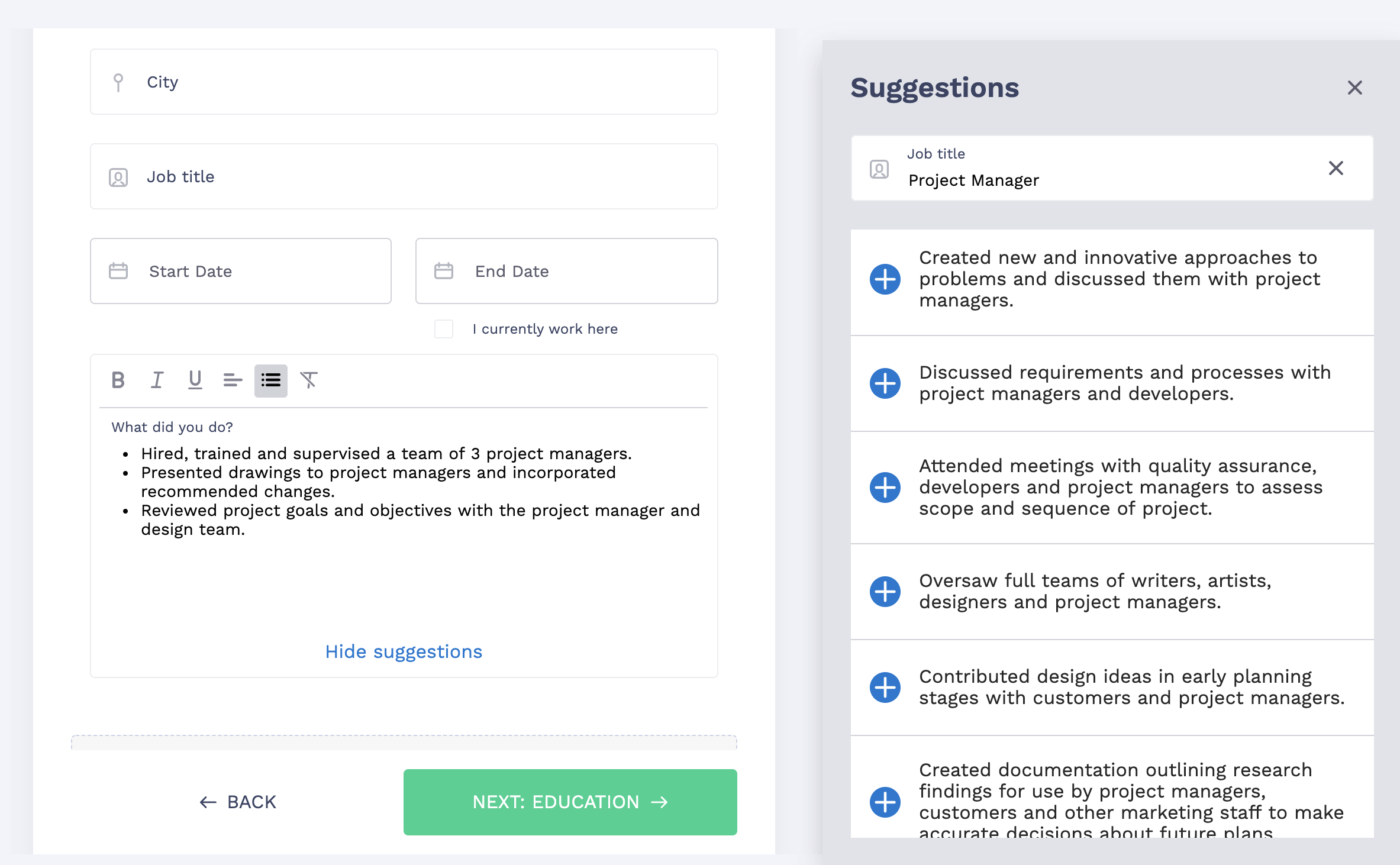
Nail it all with a splash of color, choose a clean font, and highlight your skills in just a few clicks. You're the perfect candidate, and we'll prove it. Use our resume builder now.
If you want to develop new skills or improve the ones you already have, there are many ways to do it. It’s best to pick the one that matches your personal preferences, as something that works for one person might not work for another.
However, before you jump into working on ten different skills at the same time, consider what you really need. You can ask more experienced colleagues about the skills that could help advance your career but also try to reflect on your own interpersonal abilities. A case study conducted on university students has shown that self-reflection is a great way to observe your growth and gain confidence in soft skills.
Here’s how you could work on developing your hard skills and soft skills:
That’s the most cost-effective way to develop your skills. Many companies offer on-the-job training and in-house workshops on a variety of subjects. You can ask your direct supervisor for development opportunities, and there’s a good chance they will help you come up with a plan on how to improve your soft skills or hard skills.
Certification courses can be costly, but they’re usually worth the money. Showing off a certificate from a prestigious organization can attract headhunters and quickly advance your career. Before signing up for any course, check reviews and vet the institution offering the training to ensure it’s all professional.
Yes, it does sound old-fashioned. But you don’t have to rely on ye olde paperbacks from the 1970s. There are countless books written specifically for self-learning purposes, and they present information in a clear and concise manner. You can learn new skills at your own pace.
Thousands of experts in different fields offer webinars. You can find something that matches your interests in a matter of minutes. Webinars can not only help you gain foundational knowledge on a topic but often also provide expert tips that are invaluable. Many webinars can be attended free of charge.
Most educational institutions offer online courses nowadays. You can choose from paid courses that end with an exam and a certificate, or try free ones from The Open University and other organizations.
Double your impact with a matching resume and cover letter combo. Use our cover letter generator and make your application documents pop out.
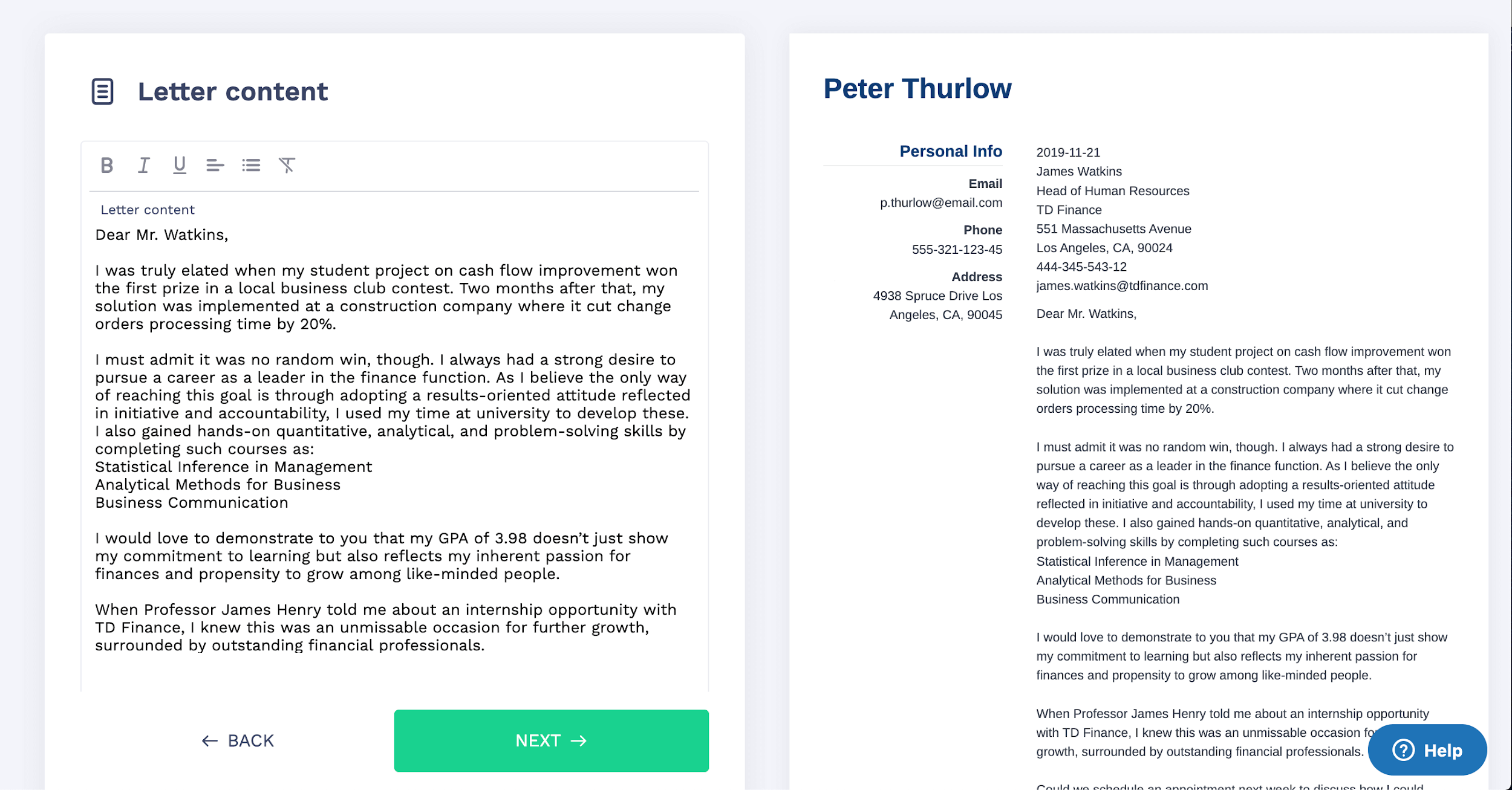
Want to try a different look? There's 21 more. A single click will give your document a total makeover. Pick a cover letter template here.
This article covers everything you need to know about hard skills vs. soft skills.
Here’s a reminder of the main points:
That’s all! Would you like to clarify any of the points from this article? Maybe you know a great way of developing soft or hard skills that isn’t mentioned here? Let me know in the comments below.

A targeted resume works because it’s personalized to the job description and the company. In this article, you’ll learn how to tailor your resume to get jobs.

Christian Eilers
Career Expert
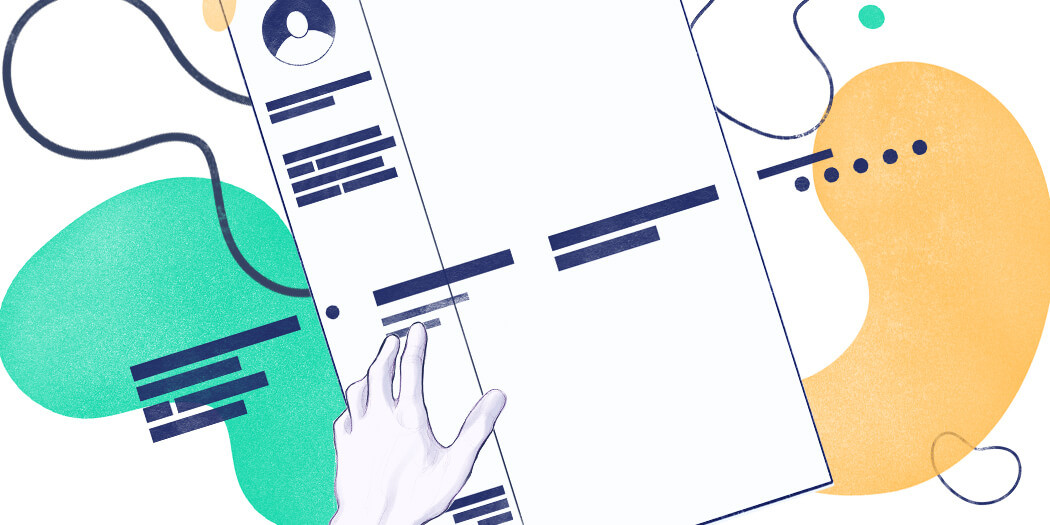
What to put on a resume? There are 5 must-have sections you need to include in a resume and some extra ones. Read on and learn what should be on your resume.

Christian Eilers
Career Expert
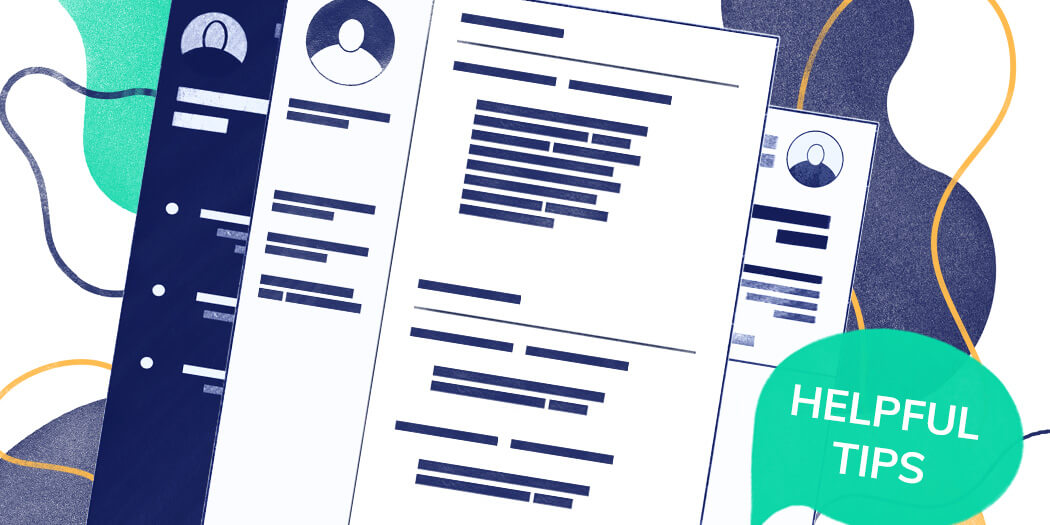
You can stop searching—this is the ultimate collection of best resume tips that can help you succeed in 2026. These resume writing tips will help to impress hiring managers.
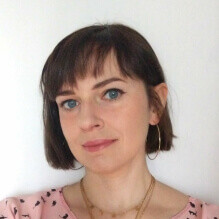
Roma Konczak, CPRW
Certified Professional Resume Writer, Career Expert